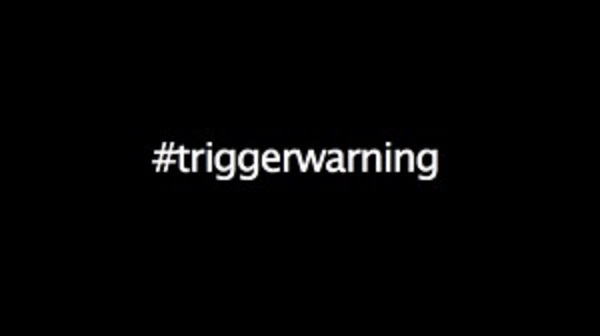Jerry Coyne has written an excellent article for New Republic, in which he mourns the “proliferation of ludicrous ‘trigger warning’ mandates” throughout academia. The most recent of these mandates comes courtesy of Columbia University’s Multicultural Affairs Advisory Board (MAAB), which proposes several ways for the university to support triggered students:
First, we proposed that the [Center for the Core Curriculum] issue a letter to faculty about potential trigger warnings and suggestions for how to support triggered students. Next, we noted that there should be a mechanism for students to communicate their concerns to professors anonymously, as well as a mediation mechanism for students who have identity-based disagreements with professors. Finally, the center should create a training program for all professors, including faculty and graduate instructors, which will enable them to constructively facilitate conversations that embrace all identities, share best practices, and think critically about how the Core Curriculum is framed for their students.
Needless to say, the final suggestion is absurd and clearly beyond the scope of any professor’s job description and expertise. The proposal of trigger warnings is a minor inconvenience, and it’s not something I’m necessarily opposed to. This brings me to the main point of the piece.
While I largely agree with Coyne’s article, he has simultaneously omitted and demonstrated the biggest problem with the current obsession with pedagogical and social coddling. I did not get the impression that he actually understands what it means to be triggered, and that is a direct result of the homeopathic-like dilution of the concept by people who are determined to portray themselves and others as victims. To illustrate a point, Coyne cites his deliberate exposure to anti-Semitic material and locations—such as his visit to Auschwitz—as an example of why one should seek out experiences that make them feel uncomfortable and unsafe.
All of that saddened me, deeply upset me, and brought me to tears. But I am glad I did it, for in a way it’s enriched my life. It’s awakened me to not only what ‘decent people’ are capable of under the right circumstances, but also to how humans can, in impossible situations, function and survive (or die) with bravery. Such literature shows us the full panoply of the human psyche, from its heights to its depths—and, after all, isn’t that what Shakespeare and Dostoevsky were about?
Of course, Coyne is simply pushing back against those who have expanded the definition of Post-Traumatic Stress Disorder (PTSD)—a debilitating illness—to the point of meaninglessness. However, he seems to use this caricatured definition as canon. Using words like “saddened”, “offensive”, and “upset” to describe PTSD-like symptoms is an error as egregious as confusing the blues with clinical depression.
Groups like MAAB have succeeded in turning PTSD-sufferers into a punchline. Anyone claiming to have the condition is now expected to be a war veteran, or else they risk being dismissed as a hypochondriac. Other weighty concepts, like harassment and sexism, have suffered a similar fate. Consider the recent viral video of a student being accused of harassment simply for waiting in a waiting room, or the widespread claims that Protein World’s “Are You Beach Body Ready?” billboard ad is sexist. It increasingly feels like we’re unwitting actors in a comedy sketch.
We are right to criticize these people for their retrograde effect on society, but it’s also worth remembering that the biggest victims of the current assault on our discourse are actual victims. Just as political correctness on the subject of Islam has immiserated peaceful Muslims, coddling and infantilizing anyone who so much as stubs a toe only harms those legitimately suffering from PTSD.
It may come as a surprise to some that PTSD isn’t exclusive to war veterans, nor victims of sexual assault. Trauma is subjective, and the threshold tends to be lower for those with a history of mental illness. For example, my mother was diagnosed with the condition after a group of teenagers insulted her with some vulgar language. This left her with severe anxiety and in a constant state of hyperarousal. The trigger for these feelings wasn’t the teenagers, but the location of the event: our neighborhood. She lived in her trigger for a year until we were eventually forced to move home.
It’s an inconvenient fact that PTSD can result from events that seem trivial from the outside. Unfortunately, the growing army of would-be Munchausen patients on the far left can point to this fact when they claim to go into a dissociative state whenever someone uses the wrong pronoun. In reality the condition is quite rare, affecting less than 10 percent of the US population. If everyone who claimed to have PTSD actually suffered from PTSD, the widespread neurosis would make society look like a Woody Allen movie.
What we’re seeing is people leveraging a serious illness to avoid ideas that challenge their own. As the likes of Coyne and Richard Dawkins have pointed out, university is about exposing oneself to a variety of perspectives and challenging one’s worldview. If you are only interested in reinforcing your own views, give university a miss. Instead, find a forum of people who will agree with your every word, or hop on Twitter and install a block bot. That is a choice you are free to make, but in doing so do not pretend to be a freethinker.

